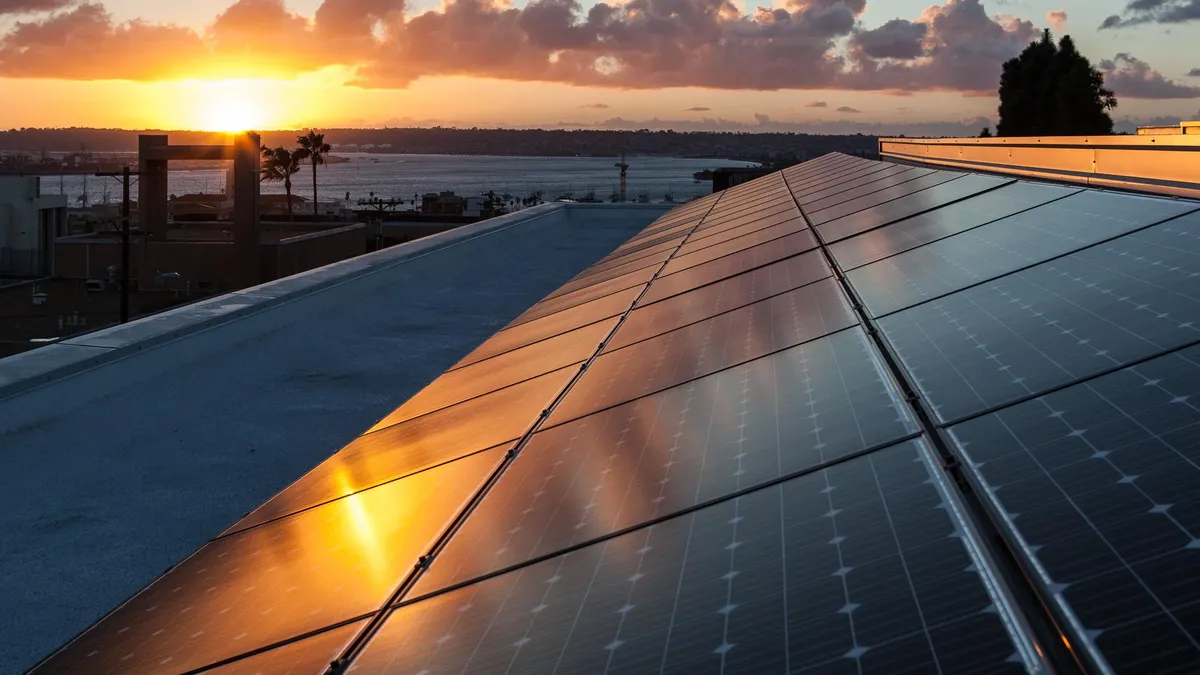The following is a contributed article by Tony Clark, a member of FERC from 2012-2016, a North Dakota Public Service Commissioner from 2001-2012, and now a senior advisor at the law firm of Wilkinson Barker Knauer.
The New England Ratepayers Association (NERA) Petition for Declaratory Order filed at FERC has hit a nerve among significant swaths of the energy and regulatory policy world.
The petition seeks to classify net metering as subject to federal pricing jurisdiction. If accepted by FERC, it would place most rooftop solar installations, which today receive exceedingly generous compensation rates in many states, under the auspices of a national pricing regime that would require less lucrative "avoided cost" rates per the Public Utility Regulatory Policy Act.
With so much money at stake, the reaction from the rooftop solar industry is unsurprising. The petition has also garnered blowback from state regulators, who view it as an expansion of federal authority into an area that has been left to state decision making, and which risks even further future federal jurisdiction creep.
Regardless of its fate at FERC, the petition has made one important contribution already. Watching various industry lobbies and energy pundits embrace the cause of "states' rights" in the name of defending full retail net metering has been sorely needed comic relief.
For years, many of these nouveau federalists cheered the courts as they enabled the federal government to dig its jurisdictional hooks ever deeper into the state/retail side of the electricity business. They gushed over Order No. 745, which promoted retail demand response. They gave a standing ovation to Order No. 841's federal conscription of the distribution grid to facilitate small energy storage devices.
Even today, they applaud litigation weaponizing Order No. 1000 against state transmission laws and they prod FERC to grab even more jurisdiction to increase federal facilitation of distributed energy resources.
With their response to the net metering filing, we can now confirm what was suspected all along. There are a lot of parties in the energy policy world whose views on federal and state jurisdiction are more than a little malleable. They are our regulatory nihilists who have successfully channeled their inner Nietzsche. There is no jurisdictional truth, there are only interpretations.
It would be unfair to say such regulatory philosophy lacks principle, for there is a principle at work: That which helps resources I like is legal; that which helps resources I do not like is illegal.
Yet we should not allow the smoke from the jurisdictional fireworks surrounding the petition to obscure the hard truth about full retail net metering as a method of determining how rooftop solar customers are compensated. Setting aside legal questions that arise from the structure of the Federal Power Act, full retail net metering as it is calculated today in many states is deeply flawed.
Paying rooftop solar-owners the full bundled retail rate for a product whose actual value is but a fraction of it has, no doubt, spurred a lot of rooftop solar installations. But the policy is, on its face, detached from economic reality. It causes massive cost shifts from solar rooftop owners to other customers. Due to poor retail rate design, its impact is overwhelmingly regressive, as generally high-income solar adopters dump their costs onto low-income consumers.
What can be said about full retail net metering is it is politically popular. Many on the left like the notion they are utilizing a renewable resource. Some on the libertarian right are attracted to the idea of generating their "own" energy.
The fact that full retail net metering shields solar rooftop adopters from the cost of their choices sweetens the deal. But it is this political allure that has made it such a trap for regulators and lawmakers. Long-term, the policy is unsustainable.
The problem with full retail net metering is, to appropriate a phrase coined by Margaret Thatcher, "eventually you run out of other people's money." If rate design doesn't evolve to recognize this immutable truth, inequities between customers will grow. Furthermore, utilities will be dissuaded from investing in renewables at-scale, which is a far more affordable and rational way to make meaningful strides towards decarbonizing the grid.
Rooftop solar deployed in the service of extracting rents for solar developers is a political and economic house of cards that imperils any state official unlucky enough to be in office when it comes crashing down. It is a regulatory time bomb. Once the deficiencies of full retail net metering become obvious for all to see, it is too late.
A consumer entitlement once created is difficult to reform, and woe to any state official who has the temerity to challenge it. For this reason alone, self-preservation would argue for states getting ahead of the curve and reforming net metering compensation as soon as possible.
For all those who truly care about federalism, the best advice I can give is, "states, heal thyself!" If not for the manifest deficiencies with full retail net metering, the NERA petition likely never would have seen the light of day.
The best way for states to avoid the obvious economic and political problems that will eventually be wrought by full retail net metering is to enact rate design reforms now. To do this, states don't need to wait for FERC to respond to the petition.
Regardless of jurisdiction, if states continue to look the other way as it relates to compensating net metered customers at the full bundled retail rate, they aren't going to like the ultimate result, and they will only have themselves to blame.






















